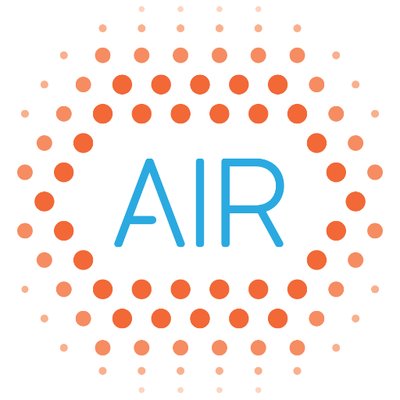Audio storytelling is a unique and powerful art. Especially in moments of crisis, listening to radio programming and podcasts can provide essential news but also comfort, connection, and inspiration. Unfortunately, among the many communities impacted by COVID-19, audio professionals are in dire need of support to continue creating and sharing.

One vital resource for this group is AIR, an organization founded 30 years ago to unite and advocate for audio producers worldwide. In response to COVID-19, AIR launched a Freelance Audio Fund focused on emergency relief for the professional audio community.
What AIR did
Because of AIR’s long-standing work around fair industry pay rates, members of the organization knew that audio community members who already struggle for compensation would face new and dramatic challenges at this moment.
According to AIR CEO Ken Ikeda, “We’re really familiar really with the challenges that freelancers face both for ongoing work and just to make a living, to put things together. So when COVID-19 happened, it became really apparent that this is a community in terrific need.”
On March 27, AIR opened its Freelance Audio Fund to meet this need, providing rapid support to audio professionals impacted by COVID-19.
How they did it
The AIR grant application can be completed in under ten minutes. According to Ikeda, organizers at AIR were focused, above all, on being responsive and nimble with this funding.
“We kept awards at $600,” he says, “to benefit from a more streamlined process where tax documentation is not triggered and you know, their are a number of folks who are undocumented in this space who are doing terrific and important work.”
For every applicant that has applied, AIR has responded within ten days.
One challenge for the audio industry is a lack of clear data around how many people work in the field and what their needs are.
As Ikeda observes, “A big challenge for us as an organization and as an industry is that freelance audio persons are under counted. So we don’t have a nice clean number to say There’s 25,000 of us that need support.”
Creating the AIR’s Freelance Audio Fund provided the perfect opportunity to do this work while also directly supporting the industry with grants.
“When we opened the fund,” Ikeda says, “we thought that this is one way to begin that process to better understand who needs these services, who needs these resources, because we knew people who did, but we don’t know the scale. Our goal was to make it as simple as possible and prioritize the urgency of the need.”
AIR’s Freelance Audio Fund is dedicated to deploying aid quickly, with minimal burden on grantees. The organization has chosen to emphasize resource-sharing over fastidious evaluation.
“For us long term,” Ikeda says, “we’re just committed to getting the money out… This is not about applying a level of scrutiny that says, are you the world’s most accomplished producer? Are you the best storyteller? We want everyone to get there, but that’s not actually the purpose of this.”
AIR chose to use software to help facilitate applications in volume among a small team.
According to Ikeda, “There’s seven people on staff and we hope to get a thousand plus applications. To be able to hold all of that information in a single place where we can track, mutually, the progress of those reviews and then advance those to our board to essentially approve and stamp funding—it’s been incredibly helpful.”
What’s next
The organization is encouraging individuals who can contribute to AIR’s Freelance Audio Fund to do so. Every dollar collected will go directly to AIR grants with nothing taken out.
Now is a particularly important time for audio production, as many print journalists and editors transition to other media. According to Ikeda, the audio community welcomes these experienced professionals who possess a unique opportunity to tell authentic local stories.
“We really want to take this moment,” Ikeda says, “coming out of COVID-19 to get people to work… Some of these extraordinary stories you’re getting about local communities, personal traumas and triumphs and recovery are coming from those hyper-local, freelance producers, right? They’re not coming from staff at a Bureau desk. And that’s exactly why they’re so important.”
Learn about how Submittable can help your organization respond to COVID-19 and explore tips for successfully launching emergency grants. For more on groups like AIR giving back through emergency grants, check out this recent spotlight.